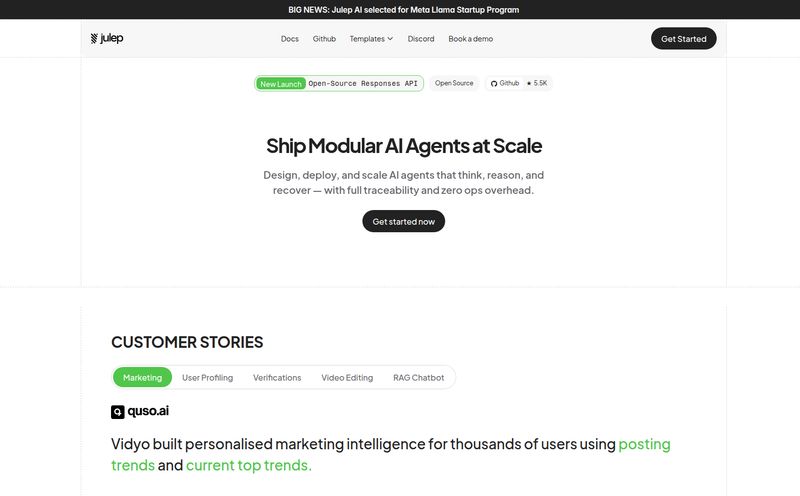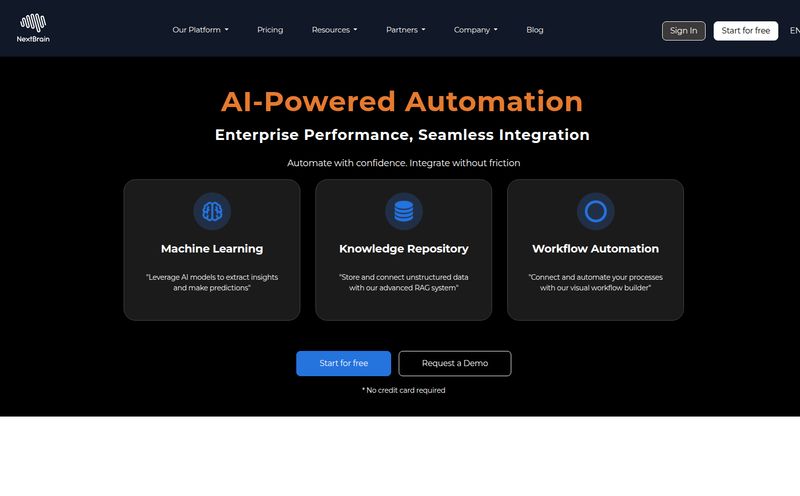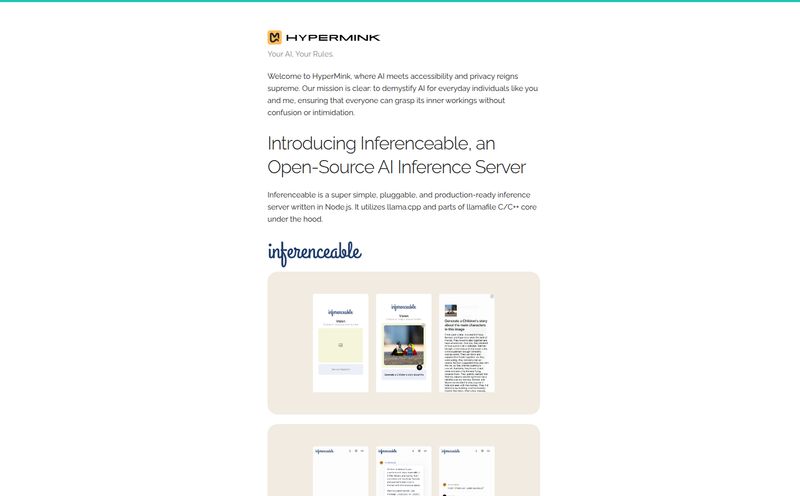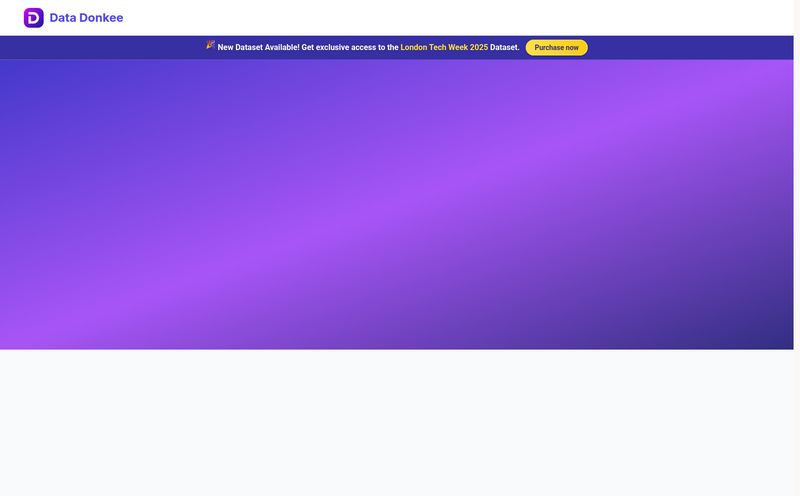I’ve been in the SEO and dev world for years now, and if there’s one thing that grinds my gears, it’s the endless subscription cycle. You find a great platform, build your project on it, and then... you're stuck. Monthly fees creep up, features get gatekept behind higher tiers, and the thought of migrating is so painful you just keep paying. It’s like a gym membership you’re too tired to cancel. We've all been there.
So, when I stumbled upon Launchpad Stack and its bold claim of "Platform Code as a Service," my cynical developer brain immediately lit up. A one-time payment? Full code ownership? No lock-in? It sounded too good to be true. Like finding a unicorn that also knows how to configure a Kubernetes cluster. But I had to check it out.
So, What is Launchpad Stack, Really?
Let's get one thing straight: Launchpad Stack isn't another no-code/low-code platform for people who don't want to touch code. Quite the opposite. It's a tool for developers who are tired of writing the same boilerplate infrastructure and application setup for every single new project.
Think of it like this. You can buy a suit off the rack (that’s your typical PaaS like Heroku), and it works okay, but it's never a perfect fit and you're limited by the manufacturer. Or, you can hire a master tailor to draft a custom pattern just for you (that's Launchpad). They don't sew the suit for you, but they give you perfectly cut pieces, the best instructions, and the freedom to assemble and modify it however you want. You own the pattern. You own the suit.
Launchpad asks you a series of questions about your project—your preferred tech stack, your goals, configuration details—and then it generates a complete, full-stack source code package. We’re talking infrastructure, application, and DevOps code, all configured to work together right out of the box.
Escaping the Matrix of IaaS and PaaS
For decades, we’ve been caught in a tug-of-war between Infrastructure as a Service (IaaS) and Platform as a Service (PaaS). It’s always been a trade-off.
- IaaS (like AWS, Azure): Total flexibility and control. You can build whatever you want! But... the setup is a nightmare, the learning curve is steep, and the delivery time is slow. You’re building the car and the factory it's built in.
- PaaS (like Vercel, Heroku): Super fast and easy. You just push code and it works. But it comes at a cost—both literally, with rising monthly bills, and figuratively, with a serious lack of flexibility and painful vendor lock-in.
Launchpad is trying to carve out a new space. They want to give you the best of both worlds. Here’s a quick breakdown of how they see themselves fitting in:
| Metric | IaaS (e.g., AWS) | PaaS (e.g., Heroku) | Launchpad Stack |
|---|---|---|---|
| Monthly Cost | Low (but complex) | High & Recurring | None (One-time purchase) |
| Flexibility | High | Low | High |
| Delivery Time | Slow | Fast | Fast |
| Lock-In | Low | High | None |
How Does the Magic Happen?
The process itself is refreshingly straightforward. You go through their launcher, select your stack, and answer the prompts. Behind the scenes, Launchpad uses what they describe as a mix of "human engineering and the latest AI." This part caught my eye. They aren’t just slapping a GPT wrapper on something. They seem to be using AI for generation but have experienced human engineers—they name-drop contributors with experience at Amazon and Bloomberg—defining the patterns and best practices.
And their philosophy is gold: "Where we do use AI, we QA the result, not you." Thank you! As someone who has spent hours debugging weird AI-generated code, that single sentence shows they get it. They're giving you a vetted, high-quality starting point, not a black box that might spit out nonsense.
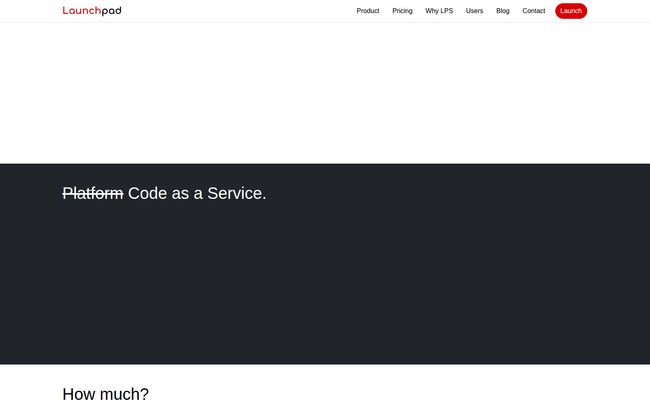
Visit Launchpad Stack
The Good, The Bad, and The Codebase
No tool is perfect, right? So let's get into the nitty-gritty. What do I actually think after digging in?
The Upside: Why I'm Genuinely Excited
The biggest pro is the financial and mental freedom. You pay once, and the code is yours. Forever. You can reuse it for other projects, modify it, reverse-engineer it for learning… whatever you want. This model feels like a throwback to the days of buying licensed software, and honestly, it’s a breath of fresh air in the subscription-saturated air of 2024.
This is a massive win for startups, freelancers, and small agencies. You can spin up a production-ready, scalable system for a few hundred bucks, without committing to a $100/month bill before you've even made your first dollar. That's not just savings; its runway.
The Caveats: Let's Be Realistic
Okay, here’s the reality check. The code you get is a snapshot in time. Launchpad generates it for you, and then it’s yours to maintain. This means when new security patches come out or dependencies need updating, that’s on you. The code can become stale.
Launchpad’s solution is that you can purchase your next "launchpad" at a discount to get the latest and greatest. That's fair, but it's something to be aware of. This isn't a managed service. You need the technical chops to manage the code you're given. If you're looking for a service that handles all the updates and security for you, a traditional PaaS might still be a better fit. This is a tool for builders who dont mind getting their hands dirty.
Let's Talk Money: The Launchpad Stack Pricing
The pricing is transparent, which I love. It’s broken down by what part of the stack you need generated. As of writing this, the one-time costs are:
- DevOps Launch: $99.99
- Infrastructure Launch: $149.99
- Application Launch: $149.99
- Full Stack Launch: $299.99
That Full Stack launch for $299.99 gets you everything. Compare that to a mid-tier PaaS plan that could easily run you $50-$150 per month. The math is pretty compelling, especially over a single year. You can check their official pricing page for the most current details.
Who Is Launchpad Stack For?
After playing around with it, I have a clear picture of the ideal user:
- The Lean Startup: You need to get an MVP out the door fast without burning through cash on recurring platform fees.
- The Experienced Freelancer/Agency: You're constantly starting new projects and are sick of reinventing the wheel with setup and configuration. This gives you a massive head start.
- The Tech Lead: You want to empower your team with a solid, best-practices foundation but retain full control over the infrastructure and avoid vendor lock-in.
It’s probably not for the absolute beginner who needs their hand held every step of the way, or for large enterprises with very rigid, pre-existing infrastructure patterns (though they could probably still learn from the generated code).
My Final Take
I came in skeptical, but I’m leaving impressed. Launchpad Stack isn't trying to be another shiny, all-in-one platform that promises to solve all your problems with a click. It's an honest, well-conceived tool for a specific audience: competent developers who value ownership and speed.
It's a powerful statement against the 'rent-seeking' model of so much of today's software. It’s a bet that developers are smart enough to manage their own code if you just give them a damn good starting point. And you know what? I think it’s a bet that’s going to pay off.
Frequently Asked Questions
- Is Launchpad Stack a no-code platform?
- No, not at all. It's a code-generation tool for developers. It writes high-quality source code for you, but you are expected to understand and manage that code.
- Do I have to pay a monthly subscription?
- Nope! That's the main appeal. It’s a one-time payment for the generated code. You own it completely after purchase, with no recurring fees.
- What happens when my code needs updates or security patches?
- Since you own the code, you are responsible for its maintenance. If you want to get a completely new, updated codebase with the latest features from Launchpad, you can purchase a new launch, typically at a discount.
- Who owns the code that Launchpad generates?
- You do. 100%. There are no restrictive licenses or weird terms. Once you buy it, it’s your property to use and modify as you see fit.
- Is the generated code difficult to manage?
- It's designed to follow industry best practices, making it clean and understandable for an experienced developer. However, it does require technical expertise to manage, deploy, and maintain, just like any other custom codebase.
- What kind of support is available?
- Their website provides contact information for support and sales inquiries. For ongoing support needs beyond the initial code generation, they suggest reaching out to their sales team, likely for a custom support arrangement.
References and Sources
- Launchpad Stack Official Website
- Launchpad Stack Pricing Details
- Martin Fowler's essays on PaaS patterns (for further reading on the concepts)
